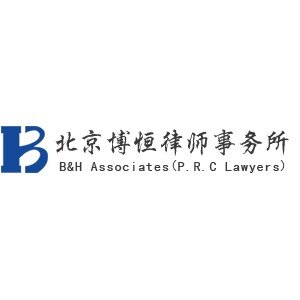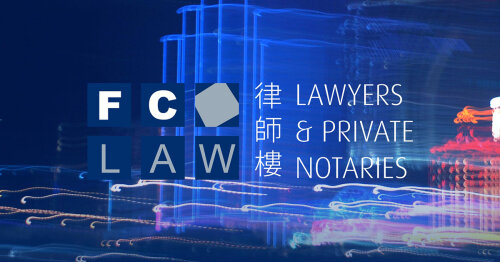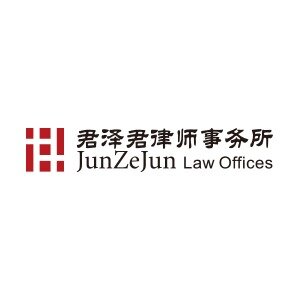Best FDA Law Lawyers in Beijing
Share your needs with us, get contacted by law firms.
Free. Takes 2 min.
List of the best lawyers in Beijing, China
About FDA Law in Beijing, China
FDA Law in Beijing, China refers to the regulations, statutes, and enforcement mechanisms governing the safety and efficacy of food, drugs, medical devices, and cosmetics. In China, the counterpart to the US FDA is the National Medical Products Administration (NMPA), formerly known as the China Food and Drug Administration (CFDA). The NMPA, along with local authorities such as the Beijing Municipal Medical Products Administration, is responsible for overseeing regulatory compliance within the city. Beijing, as the political and regulatory center of China, plays a significant role in setting standards and procedures for manufacturers, distributors, and sellers operating in the food and drug sectors.
Why You May Need a Lawyer
Navigating FDA Law in Beijing can be complicated for both local and international entities. Lawyers specializing in FDA Law can assist with matters such as product registration, import and export regulations, labeling requirements, intellectual property protection, compliance audits, recall procedures, and administrative investigations. Legal support is especially critical for companies facing government inspections, investigations due to alleged violations, or those seeking to appeal regulatory decisions. For startups, international businesses entering the Chinese market, or established companies expanding their product offerings, professional legal guidance can help avoid costly missteps.
Local Laws Overview
In Beijing, FDA Law is governed by a combination of national laws and local administrative measures. Key national statutes include the Food Safety Law, Drug Administration Law, and the Regulations on the Supervision and Administration of Medical Devices. Local regulations may impose additional requirements or stricter standards within Beijing. The NMPA and local agencies are empowered to conduct inspections, evaluate compliance, review clinical trial data, approve new products, and impose penalties for violations. Specifically, all new drugs and high-risk medical devices must be registered and reviewed by the NMPA before they can be marketed. Import regulations are rigorous, requiring extensive documentation and sometimes additional local testing. Accurate labeling in Chinese, strict advertising controls, and mandatory reporting of adverse events are enforced.
Frequently Asked Questions
What is the NMPA and how does it relate to FDA Law in Beijing?
The National Medical Products Administration (NMPA) is the regulatory body responsible for supervising the safety and quality of food, drugs, medical devices, and cosmetics in China, including Beijing. The Beijing Municipal Medical Products Administration acts as its local branch.
Do I need to register my product with the authorities before selling in Beijing?
Yes, most food, drug, and medical device products must be registered with the NMPA or its local equivalent before they can be legally sold in Beijing. The process can be complex and time-consuming.
What are the penalties for non-compliance with FDA Law in Beijing?
Penalties for non-compliance may include fines, product seizures, mandatory recalls, suspension or revocation of licenses, and in severe cases, criminal prosecution.
Are imported products subject to special requirements?
Yes, imported food, drugs, and medical devices must undergo additional scrutiny, including registration, possible local testing, and compliance with Chinese labeling and standards.
How can I ensure my product labeling is compliant?
Labeling must be in Chinese, accurate, and comply with strict format and content rules set out in Chinese regulations. Consulting a legal expert can help ensure compliance.
What happens during a regulatory inspection?
Authorities may visit your premises to review documents, inspect facilities, and collect samples. Legal counsel can assist you in preparing for inspections and responding to findings.
Are there restrictions on advertising food, drug, and medical device products?
Yes, advertising in these sectors is highly regulated. Claims must be substantiated, and certain products must be approved before promotional activities can begin. Violations can result in steep penalties.
If my product is recalled, what should I do?
Companies are required to take prompt action, notify authorities and consumers, and implement corrective measures. Legal advice can help navigate the recall process and mitigate liability.
Can I contest regulatory decisions or penalties?
Yes, there are procedures for administrative reconsideration and judicial review. Legal representation can increase your chances of a successful appeal.
How can a lawyer help me enter the Beijing market?
A lawyer can assist with product registration, contract negotiation, intellectual property protection, compliance assessments, and ongoing regulatory requirements, helping you avoid legal risks and facilitate market entry.
Additional Resources
- National Medical Products Administration (NMPA) - oversees all aspects of food, drug, and medical device regulation in China - Beijing Municipal Medical Products Administration - local authority handling registration, inspection, and enforcement - China Chamber of Commerce for Import and Export of Medicines and Health Products - a resource for companies engaged in cross-border commerce - Legal aid centers and specialized law firms in Beijing offering FDA Law services - Industry associations providing updates on regulatory developments
Next Steps
If you need legal assistance in FDA Law in Beijing, start by gathering all relevant documents about your products, business activities, and any communication with regulatory authorities. Identify your main legal questions or concerns, then consult with a local attorney or law firm specializing in FDA Law. Consider scheduling a preliminary consultation to assess your needs and develop a compliance or defense strategy. Stay informed on regulatory updates and maintain regular legal review of your operations to ensure ongoing compliance.
Lawzana helps you find the best lawyers and law firms in Beijing through a curated and pre-screened list of qualified legal professionals. Our platform offers rankings and detailed profiles of attorneys and law firms, allowing you to compare based on practice areas, including FDA Law, experience, and client feedback.
Each profile includes a description of the firm's areas of practice, client reviews, team members and partners, year of establishment, spoken languages, office locations, contact information, social media presence, and any published articles or resources. Most firms on our platform speak English and are experienced in both local and international legal matters.
Get a quote from top-rated law firms in Beijing, China — quickly, securely, and without unnecessary hassle.
Disclaimer:
The information provided on this page is for general informational purposes only and does not constitute legal advice. While we strive to ensure the accuracy and relevance of the content, legal information may change over time, and interpretations of the law can vary. You should always consult with a qualified legal professional for advice specific to your situation.
We disclaim all liability for actions taken or not taken based on the content of this page. If you believe any information is incorrect or outdated, please contact us, and we will review and update it where appropriate.















